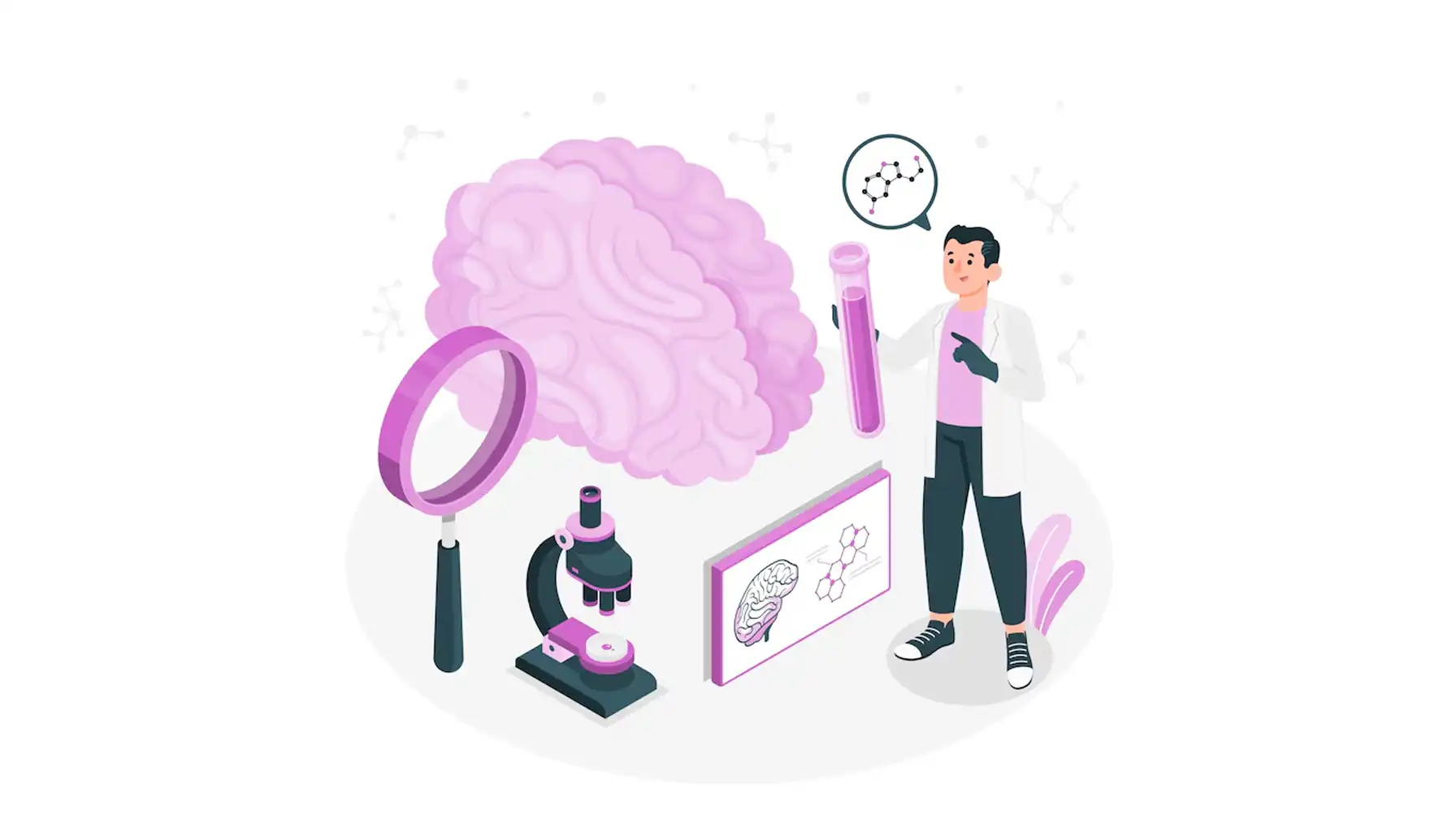Overcoming Procrastination: Neuroscience-Based Strategies

Contents:
Maybe you should read this article tomorrow… It’s been a big day already, and there are things, and… Oh no, you don’t. You, my friend, might be experiencing procrastination!
Everyone is procrastinating today, it seems. While it’s not the worst, it’s not a good situation either. Gladly, we have some tips from a neuroscience group. Get ready… Soon you’ll be productive and quick!
While you might feel tired for a physical workout, you can have a brain workout at home!
What Is Procrastination
Procrastination is the act of delaying or postponing tasks or decisions. It often involves choosing short-term comfort (like watching TV or scrolling on your phone) over long-term goals (like finishing work, studying, or exercising).
Here’s an example of procrastination. You have an assignment due in 3 days, but instead of starting it today, you spend hours on social media, telling yourself you'll "start tomorrow." That’s procrastination.

Behavioral neuroscience studies procrastination. It’s more than just laziness. Procrastination is a complex behaviour influenced by many things happening in our lives.
Why Do We Procrastinate
People with a neuroscience major often study procrastination and have found out the most common causes:
1. Fear of Failure
You might avoid starting something because you're afraid it won’t turn out well. Maybe you’re tying your self-worth to your achievements, so failing feels like a personal attack.
Try to understand that the more you delay something, the higher the chance you won’t do the task as successfully.
2. Perfectionism
Setting extremely high standards for yourself can make it difficult to start or finish tasks. Fear of mistakes or criticism makes you hesitant to act unless conditions feel perfect.
As one journal of neuroscience said, “Perfectionism can be boon and bane at the same time”. You might make a masterpiece by editing something over and over, but in the grand scheme of things, does it really matter?
3. Lack of Motivation
When a task feels boring or unimportant, you naturally want to avoid it. The brain tends to avoid things that feel like effort, especially without a clear or immediate reward.
Neuroscience psychology says that a lack of motivation is connected to low dopamine levels. You skip assignments or delay them in favor of more enjoyable things, just to get more dopamine.

4. Feeling Overwhelmed
If a task feels too large or complex, it’s easy to shut down. Something seems unmanageable, so you avoid it to reduce stress, even though you end up even more stressed later.
Pacific Neuroscience Institute once published an article about overcoming such stress. It says that when you tell someone about your endeavors, you feel less overwhelmed.
Another reason could be ADHD, as it creates this state of being overwhelmed. Maybe you have overlooked signs of ADHD.
5. Poor Time Management
You may underestimate how long things take or fail to plan. Without structure or realistic deadlines, it's easy to drift from one thing to another without real progress.
Putting off important work, believing there’s “plenty of time,” until you’re left with a rushed deadline.
Neuroscience news claims that bedtime management might be connected with a memory of how quickly/slowly we did similar tasks before. Basically, if your time template is bad, it will stay bad unless you change something.
6. Instant Gratification
Short-term pleasure often wins over long-term achievement. The brain prefers immediate rewards (like entertainment or comfort) over longer activities that pay off later.
It’s common to choose TV, phone, or friends instead of working or studying. It might be the right call sometimes to choose fun over work. Just choose in measure.
7. Low Self-Confidence
Doubting your ability to succeed can lead you to avoid tasks altogether. If you believe you’re not capable, it feels safer not to try than to risk failing and confirming that belief.
It’s hard to just raise your confidence. It takes a lot of work. Maybe in the future it’ll get easier. Alto Neuroscience, for example, is working on a drug that could artificially boost your confidence. Intrapersonal intelligence also teaches about understanding yourself.
Overcoming Procrastination Strategies
How to finally stop procrastinating? Specialists share vital strategies to fight procrastination on neuroscience courses, and we’re ready to share some of the best tips.

1. Start Before You’re Ready
Don't wait to feel motivated. Take action first, and motivation often follows. That’s a similar technique that writers use when they feel like they have no imagination. They just start writing whatever, and suddenly get an idea.
Set a timer for 2–5 minutes and do anything related to the task. You’ll break your mental resistance and feel at ease.
2. Break Tasks Into Micro-Steps
Turn big goals into small, clear, manageable steps. Small steps reduce overwhelm and create momentum.
Instead of thinking “I need to write a report”, think “I need to write the title”. This way, the task seems more manageable. When you finally write the title, think “I need to write one paragraph”, and so on.
3. Create a focused environment
When you’re focused, you’re doing the task quicker, and you have less room in your brain to think of stopping/delaying. Turn off notifications, social media, and unnecessary tabs.
Precision Neuroscience and similar companies work on applications that could artificially make you focus, e.q. Website blockers and focus apps.
You might consider developing your spatial visual intelligence to create a better environment.
4. Set Clear, Specific Goals
Vague goals like “study more” don’t work. Be precise with your goals.
Instead of thinking “I need to boost reaction speed”, think “I need to do 3 reaction tasks by 3 PM”. Clear goals reduce confusion, make it easier to follow them through.
5. Use Accountability
Accountability is when you take responsibility for your actions. Tell someone your goal, or work alongside others. We’re more likely to follow through when someone else is involved.
That's why big businesses, like Firefly Neuroscience stock, take a large number of employees. A big quantity means a big responsibility.

6. Time-Block Your Day
Our brain doesn’t like focusing on too many things, it’s very energy-taxing. Instead, schedule specific tasks at specific times. The Society for Neuroscience approves of this technique.
For example, write down that the 10:00–10:30 AM period is for answering emails, 10:30–11:00 AM is for writing emails. Most importantly, don’t mix the tasks.
7. Track Progress Daily
It’s important to track what you’re doing. Ask computational neuroscience. The whole discipline is built on tracking.
Use a notebook, planner, or app to track what you accomplished. Seeing progress builds momentum and boosts confidence.
8. Reward Yourself
Use positive reinforcement. It’s in our blood, kinda. Nature Neuroscience says that positive reinforcement helps turn the whole ordeal into a positive experience. Then we may even want to do a hard task again for the reward.
For example, when you finish a hard task, reward yourself with a snack. Preferably a healthy one.
Procrastinators VS Active People
Have you ever wondered if you’re actually procrastinating? Here’s a table comparing how active and procrastinating people think.
Area | Procrastinators | Active People |
Time Management | Do small or easy tasks first and leave big ones until later, when they’re tired. | Do important tasks early to free up energy and relax later. |
Task Approach | Wait for motivation or the “right mood” before starting. | Start tasks even without motivation. Rely on discipline and structure. |
Planning | Avoid planning or over-plan without starting. | Make simple, actionable plans and stick to them. |
Focus | Easily distracted. They check phones, tabs, or do unrelated tasks. | Remove distractions and stay focused for short, intense periods. |
Emotional Thinking | Let emotions (boredom, anxiety, fear) drive decisions. | Act despite emotions. They use tools to manage stress and discomfort. |
Goal Setting | Set vague or unrealistic goals (e.g., “I’ll do everything tomorrow”). | Set specific, realistic goals with deadlines (e.g., “Finish chapter by 3 PM”). |
Attitude Toward Failure | Avoid tasks to escape fear of failing. | Accept failure as part of learning — keep going. |
Energy Use | Waste peak energy on procrastinating or stressing. | Use high-energy hours for deep work, low-energy time for lighter tasks. |
Work Pattern | Last-minute rush, high stress, inconsistent effort. | Consistent effort with lower stress and better results. |
If your mindset corresponds more to the “Procrastinators” column, then it’s likely you’re procrastinating sometimes. Gladly, you already have our recommended strategies.
About Neuroscience

Neuroscience is what helped give you these awesome tips for fighting procrastination. But what is neuroscience? According to Merriam-Webster Medical Dictionary, the neuroscience definition is:
It’s a science that deals with the anatomy, physiology, biochemistry, or molecular biology of nerves. It’s mainly interested in how the nervous system relates to behavior and learning.
A neuroscience degree is hard to get, but it’s important. Nature neuroscience impact factor cannot be underestimated. It’s a study of us, people, after all. Plus, neuroscience jobs are quite in demand, and don't forget about the nice neuroscience salary.
Mind Elevate
If you want to one day enter cognitive neuroscience, you need to know your psyche and have a trained brain. Mind Elevate is an app that could help.
Mind Elevate is a cognitive platform. It offers over 35 games categorized as:
Brain-training games
Music games
Memory games
Logic games
Attention games.
For those fighting procrastination, attention games are very important. They train focus, something that procrastinators often lack. The games like “Galactic Shooter” and “Escape the Maze” effectively train your attention.
Mind Elevate was made with the help of scientists. The app is free for iOS/Android.





